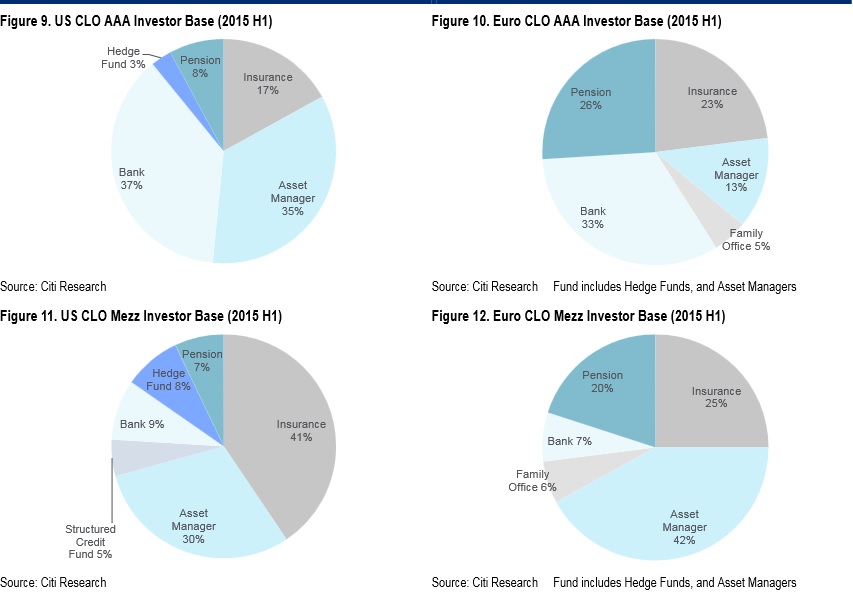European pension funds are piling into collateralized loan obligations (CLO) as the hunt for yielding assets remains hot.
Data from Citi published this week showed that pensions made up 26% of the investor base for European AAA-rated CLOs in the first half of 2015, second only to banks with a 33% share. Insurers made up 23% of the market.
In the US, asset managers have taken a significant share of the market as banks have reduced their activity in the CLO sector. Asset managers accounted for more than a third (35%) of the investor base for AAA-rated securities in the first six months of the year, Citi said, with banks taking 37%.
“Asset managers are catching up quickly to match up with banks’ demand of senior-most paper,” Citi analysts Ratul Roy, Maggie Wang, Andy Chen, and Joseph Walsh wrote. “Yield-starved pension funds have made an arrival into the CLO space, and seem to be here for the long haul.”
Private debt markets have become popular among asset owners in recent years as banks have backed out of some areas of lending in order to de-risk their balance sheets. Last year the market was estimated to have hit $2 trillion.
The Citi analysts also noted that banks now had their lowest CLO market share since the peak of financial crisis.
“In the AAA primary market, for example, banks have decreased from representing 85% of the market in 2012 (the post-crisis high) to representing only 40% in 2014,” the analysts wrote. “This year was no different, with banks purchasing, proportionally, their lowest post-crisis allocation on 38% in the first half of 2015.”
In the mezzanine space, banks bought just 9% of issuance in the first half of this year, Citi’s analysts said.
Read:Citi’s Global Structured Credit Strategy report

Related:A How-To Guide to Private Debt & Private Debt Supply Lines Swelling, Says Moody’s
